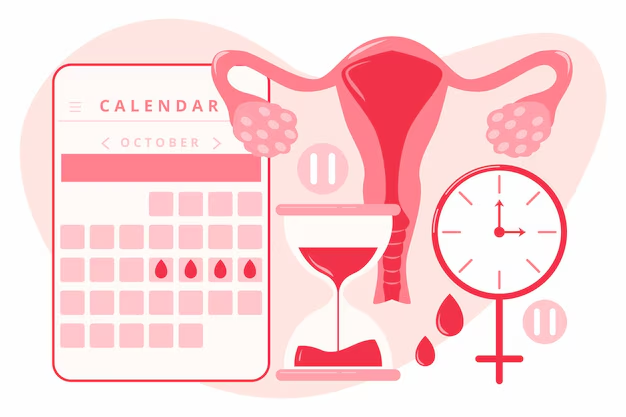Journaling your thoughts

The menstrual cycle isn’t just about physical changes — it’s also deeply tied to our emotional and mental states. From fluctuating moods to moments of unexpected clarity or overwhelm, our hormones influence much more than we realize. One of the most powerful, yet often overlooked, tools to navigate these changes is journaling.
Journaling your thoughts throughout your cycle can help you track patterns, identify emotional triggers, and foster a deeper connection with your body and mind. In this article, we explore how journaling can support your menstrual health and mental wellness.
Why Journaling During Your Cycle Matters
The menstrual cycle has four phases — menstrual, follicular, ovulation, and luteal — each influencing your mood, energy levels, and mental clarity. Journaling can help you:
-
Recognize emotional patterns linked to specific phases.
-
Process overwhelming feelings instead of suppressing them.
-
Track mental health fluctuations that align with hormonal changes.
-
Boost self-awareness, leading to better self-care decisions.
-
Empower you to communicate better with healthcare providers.
What to Write in Your Journal
You don’t need to be a professional writer to keep a journal. The key is honesty and consistency. Here are a few prompts and sections you can explore:
🩸 1. Daily Mood Check-In
-
How am I feeling emotionally today?
-
Did I feel anxious, calm, frustrated, or joyful?
-
How intense were my emotions on a scale of 1 to 10?
🧠 2. Mental Clarity & Focus
-
Was I able to concentrate?
-
Did I feel mentally sharp or foggy?
-
Any tasks that felt easier or harder than usual?
❤️ 3. Energy & Motivation
-
Did I feel motivated to move, create, or connect?
-
Were there moments I needed more rest or space?
🗓️ 4. Cycle-Related Notes
-
What day of my cycle is it?
-
Am I experiencing PMS or symptoms like cramps, headaches, or fatigue?
🌈 5. Gratitude & Reflection
-
What am I grateful for today?
-
One thing I’m proud of or learned about myself this week.
Benefits of Journaling Through the Cycle
1. Better Emotional Regulation:
When you understand your emotional ups and downs, you're less likely to feel out of control. Journaling gives you space to express rather than react.
2. Reduces Anxiety and Overthinking:
Writing down your thoughts helps clear mental clutter, bringing calmness during hormonal turbulence.
3. Promotes Self-Compassion:
Instead of being hard on yourself for feeling low or unmotivated, journaling helps you treat yourself with kindness.
4. Supports Mental Health Awareness:
You might start noticing signs of premenstrual dysphoric disorder (PMDD) or prolonged emotional dips. Journals can provide valuable data for therapists or doctors.
How to Start Journaling – Even If You’ve Never Done It Before
-
Pick a time that feels natural – morning or before bed works best for many.
-
Use a dedicated notebook or app – something that feels personal and private.
-
Start small – 5 minutes a day is enough.
-
Be honest, not perfect – it’s your space to let go, not to impress.
-
Use templates or mood trackers – visual tools can make it fun and less overwhelming.
Bonus Tip: Use Color Coding!
Assign colors to different phases or moods. Over time, you’ll have a beautiful visual map of your menstrual-emotional journey.
Final Thoughts
Journaling your thoughts throughout your menstrual cycle isn’t just about tracking periods — it’s about understanding yourself on a deeper level. It’s a practice of emotional mindfulness, mental wellbeing, and self-love. Whether you're trying to boost productivity, reduce anxiety, or simply know yourself better, your journal can be your most honest and healing friend.
Start today, one page at a time.
💬 Tell us in the comments:
Have you tried journaling during your cycle? What’s one thing you discovered about yourself?
Related Articles

Eating for skin and hair health

Early signs of pregnancy

Joining pregnancy support groups

How movement boosts mood

Setting up the nursery

Asking for flexibility when needed

Learning about newborn care

How to Track Your Menstrual Cycle and Why It's Important